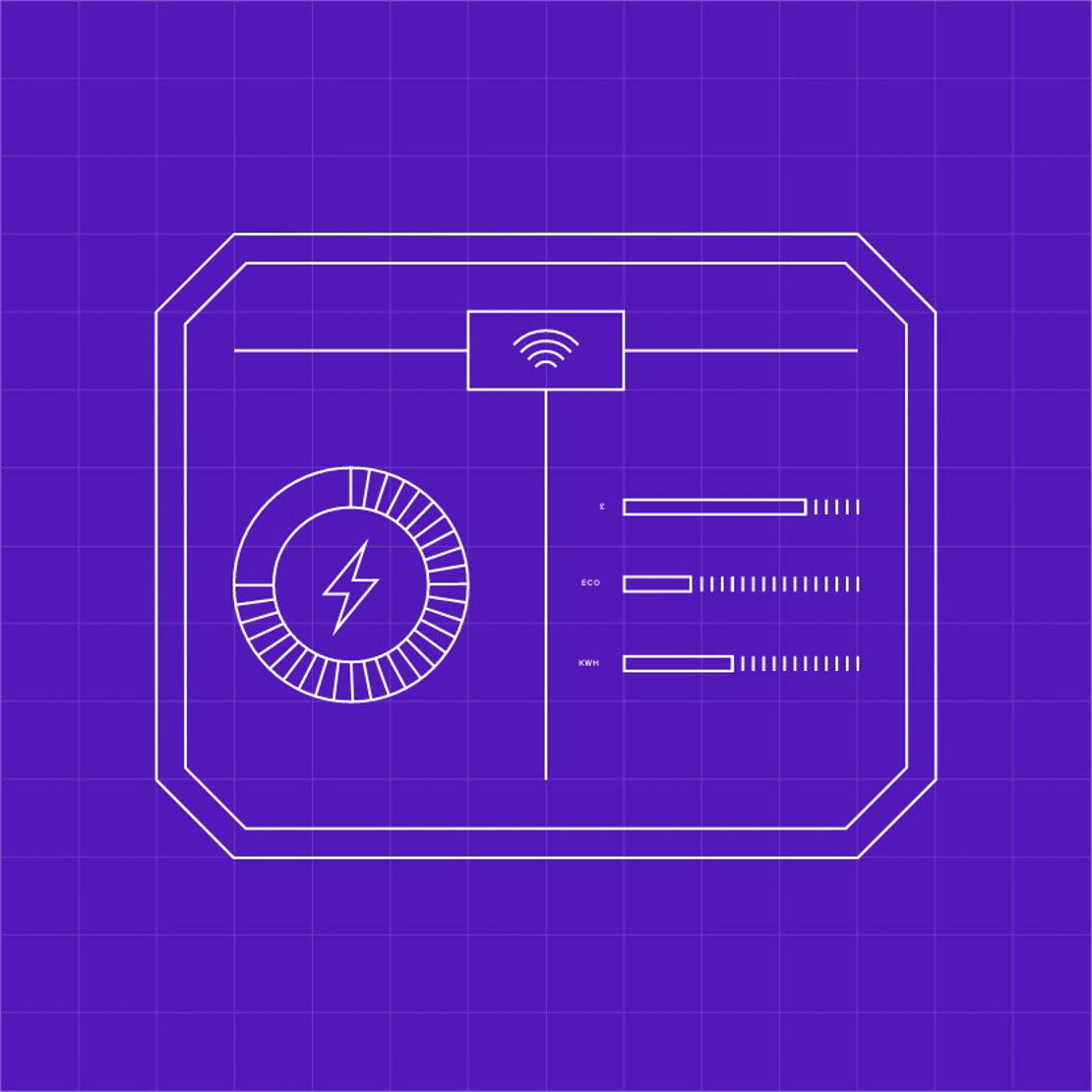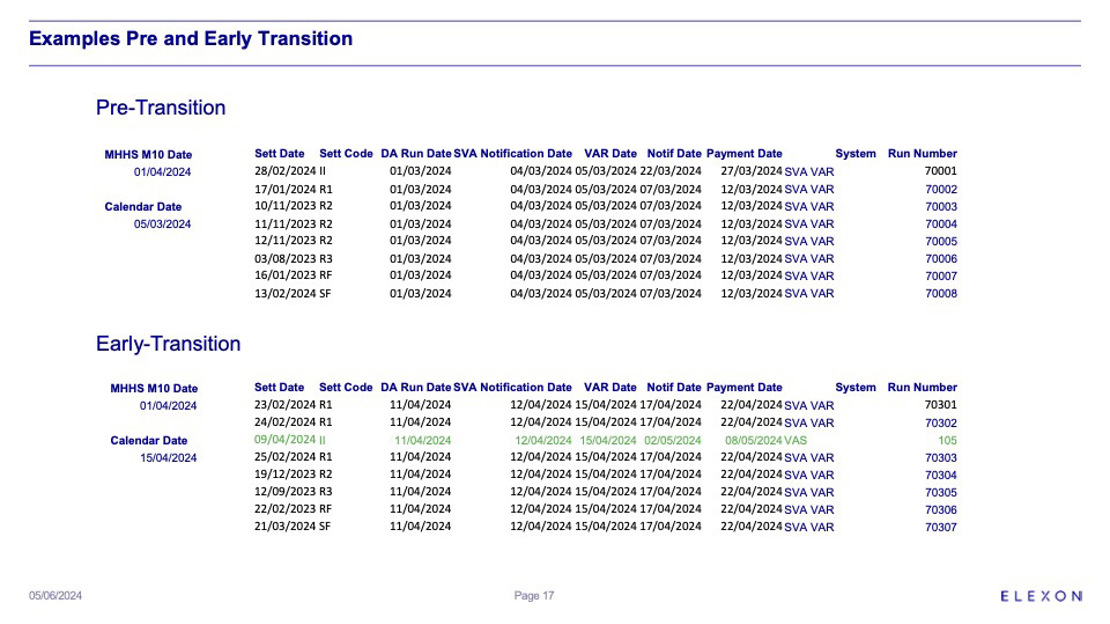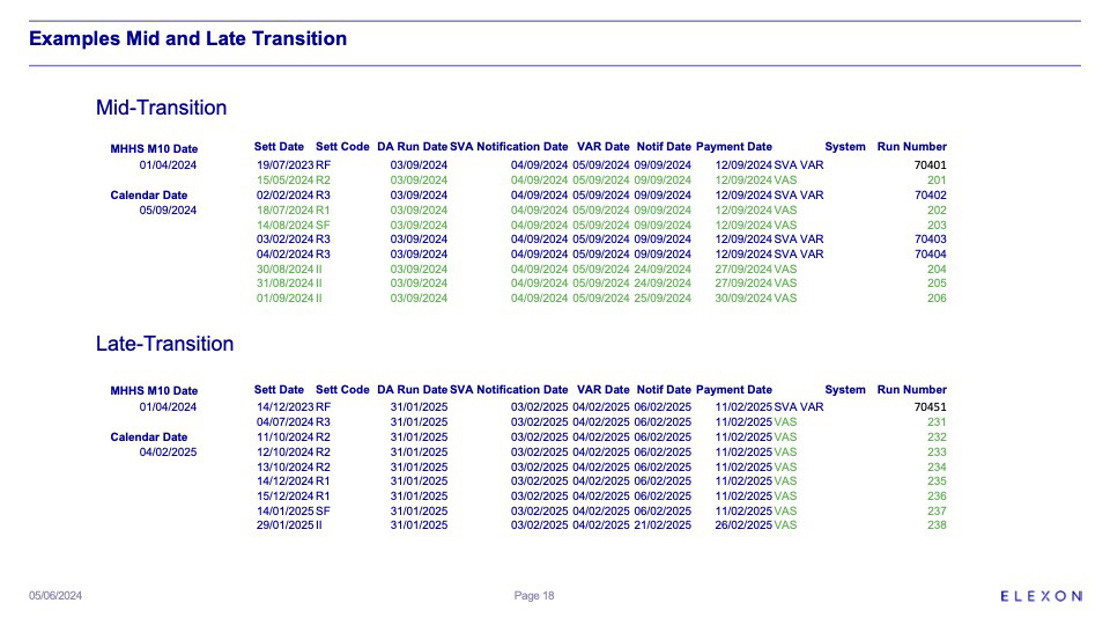Previous PPIRs
You can find information on closed Programme Participant Information Requests (PPIRs) on this page, with the most recent one at the top.
For more information on PPIRs, please email PPC@mhhsprogramme.co.uk
End-to-end (E2E) Participant Journey, Migration Pathways & Industry Standing Data (ISD) Publish PPIR
The Programme, Code Bodies and Elexon collaborated on an E2E Participant Journey, Migration Pathways & ISD Publish PPIR.
This PPIR has now closed. Thank you to all participants who have responded.
The details of this PPIR were set out in the Guidance Pack, which you can view below. All participants were strongly encouraged to read the guidance provided before responding to the PPIR.
PPIR Guidance Pack - E2E Participant Journey, Migration Pathways & ISD Publish
The PPIR was split into three sections:
- The first section included a set of introductory questions that all participants were required to respond to.
- The second section focused on the ‘Migration Pathways’, which built on the Non-Systems Integration Testing (SIT) Supplier & Agent E2E Journey Maps. Only Non-SIT participants taking a market role through MHHS Qualification were required to respond to these questions.
- The third and final section focused on the case for re-introducing fortnightly ISD publications. All participants were required to respond to these questions.
We hosted a webinar on Wednesday 21 January 2026, to walk through the PPIR and provide an opportunity for participants to ask clarification questions. You can view the webinar slides and recording on the MHHS Webinars & Open Days page of this website.
The Programme, Code Bodies and Elexon are reviewing the responses received and will reach out to participant's bilaterally with any follow-up queries.
If you have any questions on this PPIR, please email the Programme Party Coordinator (PPC) team at PPC@mhhsprogramme.co.uk


Non-Systems Integration Testing (SIT) Supplier & Agent Post-Qualification Testing (QT) Sandbox
You should be aware of this request if you are a Non-SIT Supplier or Agent.
Elexon's Non-SIT Qualification Testing team issued a Post-Qualification Testing (QT) Sandbox Programme Participant Information Request (PPIR) for all Non-SIT Suppliers and Agents to complete.
Please note that this PPIR closed on Friday 21 November 2025. Thank you to everyone who responded.
The purpose of this PPIR was to support the Non-SIT Qualification Testing team to assess the scope and design of the Non-SIT Supplier and Agent Sandbox Testing tools. Responses to this PPIR will be used to ensure that the Non-SIT Supplier & Agent Sandbox has the appropriate capability and scale to support necessary additional participant testing.
As a reminder, the Non-SIT Supplier & Agent Sandbox is provided for participants to conduct any testing beyond the minimum test set required for Qualification, in a defined period post Non-SIT QT completion, through to the current planned end date of 28 August 2026.
Please note that participants were obligated to respond to this PPIR under BSC Section C 12.12.1, and that participant responses should reflect their Placing Reliance arrangements.
Elexon's Non-SIT Qualification Testing team have collated and reviewed the responses, assessing them against their testing resource plans, and presented an update on the proposed approach at the Qualification Test Execution Forum (QTEF) on Wednesday 26 November 2025. The approach will be ratified via the Qualification and End-to-End (E2E) Sandbox Working Group (QWG) on Tuesday 9 December 2025.
If you have any questions, please email MHHSQualification@elexon.co.uk
Request for Urgent Response to M10 Contingency Scenarios and Plans Impact Assessment
The Programme has undertaken a contingency planning exercise to identify what action the Programme and participants might need to take if certain conditions are not met for M10 decision-making.
Please note that the Programme is still progressing on the basis of delivering the Cutover Plan to meet M10, and that this contingency planning exercise was carried out to ensure that the Programme and participants are suitably prepared for any exceptional circumstances if they were to arise.
To-date, the Programme has engaged with M10 parties through focused bilaterals and workshops to discuss scenarios, feasible contingency plans and associated assumptions.
This PPIR has now closed. Thank you to all participants who have responded.
This PPIR was an opportunity to formalise feedback through impact assessment and was issued to all Principal Contacts on Friday 5 September 2025.
You can view the contingency scenarios and plans below:
The Programme recognises that this is a significant ask and didn't not allow much time for participants to complete the impact assessment, but these timelines ensured that the Programme had appropriate feedback and insights in advance of the Programme Steering Group (PSG) meeting on Friday 12 September 2025, as set out in the M10/M11 decision-making choreography.
If you have any questions or you didn't receive this important request for information, please email the Programme Party Coordinator (PPC) team at PPC@mhhsprogramme.co.uk


MHHS Central Parties Migration Contact Information
The MHHS Migration team is developing Kestrel, the Migration Planning Management Tool, that will provide Central Parties with reporting capabilities for the MHHS Migration later this year.
To ensure that this tool is beneficial, the Migration team need to confirm contact information for your organisation.
This PPIR aimed to confirm the details for your:
- Principal Migration contact(s)
- Confirmation of any Market Participant Identifier(s) (MPID) you are responsible for, as well as information about the Supplier MPIDs you expect to be contracted with for MHHS operations
- User details for those requiring access to Kestrel
On Thursday 5 June 2025, the MHHS Migration team emailed Central Parties to request these key details.
This PPIR has now closed. Thank you to all participants who have responded.
Participants will receive access to Kestrel ahead of the Migration Dress Rehearsal 2 that is scheduled for July 2025.
If you have any questions about this PPIR, please email the Migration team at Migration@mhhsprogramme.co.uk
MHHS Migration Supplier Agent and Software Providers
The MHHS Migration team is developing Kestrel, the Migration Planning Management Tool, that will provide Supplier Agents and Software Providers with reporting capabilities for the MHHS Migration later this year.
To ensure that this tool is beneficial, the Migration team need to confirm that the contact information we held for your organisation was correct.
This PPIR aimed to confirm the details for your:
- Principal Migration contact(s)
- Confirmation of any Market Participant Identifier(s) (MPID) you are responsible for, as well as information about the Supplier MPIDs you expect to be contracted with for MHHS operations
- User details for those requiring access to Kestrel
To support this Migration planning activity, on Wednesday 14 May 2025, the MHHS Migration team emailed Supplier Agents and Software Providers to request these key details.
This PPIR has now closed. Thank you to all participants who have responded.
If you have any questions about this PPIR, and/or require access to Kestrel, please email the Migration team at Migration@mhhsprogramme.co.uk


Further Questions regarding the Use of the Meter Data Retrieval (MDR) function
On Wednesday 7 May 2025, the MHHS Programme issued a PPIR to request key details on the MDR function from both Suppliers and Smart Data Service (SDS) participants.
This PPIR was to obtain additional information relating to the use of the MDR Data Integration Platform (DIP) User Role. In particular, the anticipated use of the optional DIP messages in the IF-061 to IF-065 range that may be used to transfer data between SDS and MDR User Roles via the DIP to help support the planning for both Service Activation and DIP Onboard Planning.
This PPIR has now closed. Thank you to all participants who have not responded.
If you have any questions, please email Karen Lavelle at Karen.Lavelle@elexon.co.uk
MHHS Migration Licensed Distribution System Operator (LDSO) Information
The MHHS Migration team is developing Kestrel, the Migration Planning Management Tool, that will provide LDSOs with reporting capabilities for the MHHS Migration later this year.
To ensure that this tool is beneficial, the Migration team needed to confirm that the contact information we held for you was correct.
This PPIR aimed to confirm the details for your:
- Principal Migration contact(s)
- LDSO details and confirmation of the Market Participant Identifier(s) (MPID) you are responsible for
- User details for those requiring access to Kestrel
To support this Migration planning activity, on Tuesday 22 April 2025, the MHHS Migration team emailed LDSOs to request these key details.
This PPIR as now closed. Thank you to all participants who have responded.
If you have any questions about this PPIR request, please email the Migration team at Migration@mhhsprogramme.co.uk


Proposal to descope the Qualification Testing Framework (QTF) Central Switching Service (CSS) stub
This request is only relevant to Non-Systems Integration Testing (SIT) Suppliers going through Qualification.
The Programme issued a PPIR on behalf of the Code Bodies, focusing on the proposal to descope the Qualification Testing Framework (QTF) Central Switching Service (CSS) stub as discussed at the Non-SIT Supplier & Agent Qualification Testing Subgroup (SAQTSG) on Wednesday 2 April 2025.
This PPIR has now closed. Thank you to all participants who have responded.
If the QTF CSS stub were to be descoped, each CSS step would remain in the Qualification Test Cases (QTCs) for business process visibility, but the QTF would not send or receive any CSS messages. The key advantages and disadvantages for this proposal are clearly set out in the PPIR itself.
If you have any questions about this, or related to the QTF and/or BETA testing, please email the Code Bodies at MHHSQualification@elexon.co.uk
Sandbox Testing
Proposed use and value provided from the defined Sandbox using the User Integration Testing (UIT) and Systems Integration Testing A (SIT-A) environments
On Monday 24 March 2025, the Programme issued a Programme Participant Information Request (PPIR) focused on Sandbox Testing – Proposed use and value provided from the defined Sandbox using UIT and SIT-A environments.
This PPIR has now closed. Thank you to all participants who have responded.
The purpose of this PPIR was to seek views from all participants on:
- The value for participants in providing a Sandbox service
- What the potential uses might be
- What the best timings might be
More details are now known about how Qualification Testing will run (Supplier & Agent and Non-SIT Licensed Distribution System Operator (LDSO)), how participants will use the relevant Test Harnesses and how these will operate alongside the associated Test Data approaches. On this basis, the potential limitations and opportunities of using the UIT environment are now better understood by all parties and worth revisiting in the context of Sandbox.
You can still view the background notes that were provided as part of this PPIR, for information only:
Sandbox Testing PPIR: Additional background notes
The Programme will use these PPIR responses to assess and propose any changes to the End-to-end (E2E) Sandbox Guidance and the associated development of the E2E Sandbox Test Data Approach and Plan.
The results will be discussed at April’s Qualification Working Group (QWG) and the Programme Artefacts and Programme Plan will be updated in line with the agreed way forward.
If you have any questions, please email PPC@mhhsprogramme.co.uk


Migration and Qualification Supplier Organisation Information
The Migration team is currently developing a Migration Planning Management Tool, called Kestrel, which will enable suppliers to review their supplier capacity envelopes and submit their migration plans. To ensure that this tool is beneficial, the Migration team need to confirm the Market Participant Identifier(s) (MPID(s)) suppliers wish to be considered for Migration and the user details for those who will need access to the tool.
In addition to this, the Code Bodies also need to know if there have been any changes to your Qualification information and ensure that information they hold relating to MHHS Qualification is correct.
To simplify this request, we combined these requests into a single PPIR.
On Monday 17 March 2025, the Migration team emailed Principal Contacts at Supplier organisations with two sheets of key MPID and company information. One has additional Qualification information, and the other has additional Migration information.
We requested that each supplier organisation completed the attached files in the email, providing the following information:
- Nominated user information for Kestrel
- Any amendments to the Qualification and/or Migration information
- Confirmation that the information is correct
This PPIR has now closed. Thank you to all participants who have responded.
If you have any questions about this PPIR, please email Migration@mhhsprogramme.co.uk
Use of Meter Data Retrieval (MDR) Function - Supporting Assumptions for Data Communications Company (DCC) Capacity Planning
Background
The MHHS Target Operating Model (TOM) allows for several configurations for the use of Smart Data Service (SDS) and MDR functions, this is also reflected in the MHHS business processes and Data Integration Platform (DIP) interfaces.
The way that Suppliers set up and appoint the SDS/MDR Service Providers within Registration Data has subsequent impacts for how data is collected for Smart Meters, via DCC, and therefore its Demand Forecasting and Capacity Management processes.
This optionality provides choices and decisions for each Energy Supplier (and their associated appointed SDS) in how they operate and deliver the service. Understanding these decisions is important to help the MHHS Programme and all industry participants successfully plan for service delivery.
To support DCCs ongoing Demand Forecasting and Capacity Management processes, DCC need to validate with Programme participants the assumptions for anticipated behaviours of Energy Suppliers / SDS Service Providers in relation to the appointment of the SDS Service Provider. In particular, understanding how each Supplier appointed SDS is expected to operate, either using, or not using the MDR function for collecting smart meter data and whether Suppliers will continue to collect smart meter data in addition to where they use MDRs.
It is essential to the MHHS Programme that DCC can plan and support likely operational volumes, therefore the Programme is requesting the data within this PPIR for use at DCC. The Programme will continue to liaise with DCC and request updates to forecasts from industry to provide more accurate information through the remaining lifetime of the Programme. This will contribute to cost effective implementation decisions for industry.
This PPIR has now closed. Thank you to all participants who have responded.
The results of this PPIR will be shared with the Smart DCC, who will analyse the findings accordingly. If further information is required, Smart DCC will reach out to participants individually.
If you have any questions about this PPIR, please email paul.mcshane@smartdcc.co.uk


Milestone 10 (M10) Checkpoint: Feasibility of bringing Milestone 14 (M14) forwards
The Milestone 10 (M10): Central systems ready for migrating Meter Point Administration Numbers (MPANs) checkpoint was introduced to the Programme Plan during the CR055 process. As feedback from that process, the Programme took an action to assess the viability of bringing forwards the downstream milestones beyond M10, enabling the Programme to finish sooner than currently planned.
As part of this exercise, the Programme attempted to ascertain whether the Qualification window could be brought forwards or completed earlier and therefore Milestone 14 (M14): All Suppliers must be able to access MPANs under the new Target Operating Model (TOM) brought forwards.
To do this we needed to understand whether Wave 4 of Qualification could be removed, or shortened, to enable M14 to come forwards. This required understanding whether Wave 4 Programme participants could expedite delivery and move into Wave 3, as well as confirming if there is capacity in other waves to do this without creating undue risk. We also wanted to test whether the current plan window to complete Wave 4 Testing, Qualification and Service Activation could be shortened.
This PPIR has now closed. Thank you to everyone who provided feedback. You can still view the supporting information below:
The Programme will review the PPIR findings with the Code Bodies and will use the responses to form a view of feasibility. The results of this will be presented at the Programme Steering Group (PSG) meeting on Wednesday 2 April 2025.
If you have any questions about this PPIR, please email PPC@mhhsprogramme.co.uk
PPIR in relation to New Connections between M10 – M14
This PPIR is now closed. Thank you to everyone who has responded.
This PPIR asks questions relating to the issues currently being faced in relation to New Connections between M10 – M14.
Following feedback during a Migration Working Group (MWG), clarification was sought on the New Connection Process between M10 and M14.
At the time, the Programme issued guidance on the post-M10 Connection Process and was communicated to participants via the MWG. This guidance highlighted differing implementation interpretations.
Two Design Resolution Group (DRG) workshops took place on 23 January and 4 February 2025, where we walked through options to provide sufficient information for participants to complete the PPIR.
Three options were included with the PPIR for assessment and response, with Option 3 being no impact.
You can view the supporting documents below:
New Connection Scenarios - Post meeting updates
Design Resolution Group (DRG) Meeting 18: 4 February 2025
If you have any questions about this PPIR, please email Design@mhhsprogramme.co.uk


Defect 43971 – Distribution Use of System (DUoS) Tariff ID
The MHHS Programme published a PPIR to obtain information from participants on the impacts to your organisation of proposed solutions.
This PPIR is now closed. Thank you to everyone who has responded.
Background
The REP-002a/b is failing to be loaded by Systems Integration Testing (SIT) participant SSEN*, via Durabill, as it contains duplicate DUoS Tariff IDs which are based on combinations of (DUoS Tariff ID/DUoS Tariff Energy Direction/DUoS Tariff Domestic Premise Indicator).
*BUUK and a number of other Independent Distribution Network Operators (IDNOs) are not affected as the C&C DUBS solution loads the REP-002a/b. There are participants outside of SIT that do not use Durabill or DUBS that may be impacted.
Durabill, used by all Distribution Network Operators (DNOs), expects a single DUoS Tariff ID within the REP-002a/b. When this error occurs within a file the whole file is rejected and DUoS Billing cannot proceed against any record within that file. This means that no REP-901s can be produced as they use this data and therefore Suppliers cannot be billed for DUoS. There is no “do nothing” option.
The Programme recognise that this issue introduces significant risk to DNO activities. If duplicate DUoS Tariff IDs are reported in REP-002a/b the file will not be ingested, and billing will not be possible. This issue applies to both SIT and Non-SIT participants.
You can view the options that were provided when the PPIR was issued in the information pack below:
PPIR Information Pack: Defect 43971 - DUoS Tariff ID
This PPIR is now closed.
The Programme is collating and analysing the PPIR responses and the Senior Responsible Owner (SRO) will decide on the appropriate solution to be implemented.
If you have any questions about this PPIR, please email Design@mhhsprogramme.co.uk
Smart Data Communications Company (DCC) MHHS Meter Data Retrievers (MDR) Onboarding PPIR
In conjunction with the Programme, the Smart DCC sought to understand and validate assumptions relating to the demand for onboarding new MHHS Meter Data Retrievers (MDR) into DCC for Systems Integration Testing (SIT) participants.
In light of this, all SIT Suppliers were required to submit a response.
Information is treated confidentially and will not be shared with any other organisation.
If you have any questions about this PPIR, please email the Smart DCC at Michael.Wallace@smartdcc.co.uk


Qualification Wave Reallocation PPIR
Code Bodies wish to support participants wanting to move Qualification Wave in response to CR055 as much as possible, whilst also managing risk to the Programme delivery timelines and in particular M10.
For more details on this PPIR, which is now closed, please visit the Qualification Wave Reallocation PPIR page of this website.
If you have any questions about this PPIR, please email PMO@mhhsprogramme.co.uk
PPIR in relation to 'Validation of Service Provider Change of Supplier (CoS) Appointment' prior to formal Change Request
Overview to the Validation of Service Provider Change of Agent (CoA) Appointment
Appointment messages are always triggered during a Change of Supplier (CoS). All Appointment messages need to be sent with an Appointment Scenario.
If during a Change of Supplier, the Appointment message is sent in with a “COS” scenario, but the COS has already happened (i.e. the date the Appointment message is processed by Registration Service is past Supply Start Date (SSD)), then under the current design, the Registration Service would reject the Appointment message. The Supplier would need to resubmit the Appointment message as a “CSP” scenario.
Suppliers normally submit Appointment messages in advance of the SSD and these messages are normally successfully processed and accepted by the Registration Service under the current design.
The below draft Change Request requested that the Registration Service changes their validation rules to accommodate the exception process where the Registration Service does not process the Appointment messages in advance of SSD. There are a few edge case scenario’s where this could happen as outlined in the draft Change Request the Large Supplier Constituency (LSC) have provided.
The below is taken from the draft Change Request issued by the LSC and should be used for information by Programme participants as they complete the PPIR.
What's the issue?
Service Provider appointments messages require that a Service Provider Appointment Scenario is provided as part of the Supplier Service Provider Appointment Request and subsequent appointment messages.
Following discussions at the Fast Track Implementation Group (FTIG) (agenda item - Obstacle D006 and DRG 16 both on 31 May 2024 – CR045: SSD Correction Tool), the Design team stated that:
“If you are the Supplier, either on or after the SSD, then it [the appointment scenario] will need to be CSP [change of service provider]”. This position is based on DIN-172: “Noticed IF-031 is missing validation to ensure on the CoS scenario the Supplier is the pending Supplier, not the current Supplier. The CoS scenario should only be used as part of a CoS process as validation may differ slightly from other scenario types. The current Supplier should instead use CSP or SEG as is appropriate.”
The proposed solution of this was: “Validation rules updated to better match App Scenario with Supplier/SP. Requesting flexibility on error messages”.
The Large Supplier Constituency does not agree with interpretation of the logic described above, as they believe it will result in an increase in exceptions, problems in reporting, impact to settlement and customer detriment due to the cost of implementing flawed logic. The present Design requires the appointment scenario to be changed if the appointment is processed late. This will cause rework for all parties. Such delays could be seen through system outages or through daily cut offs that could drive 'on time' appointments into late appointments.
If there is an outage similar to that experienced at Central Switching System (CSS) on 6 July 2023, this would result in the rejection and resubmission of all appointments. That would not be required if the change in logic described below was implemented.
What is the proposed change?
If no Service Provider is in place this cannot be a Change of Service Provider event. The fact that the request is being processed after SSD is not material.
If the Agent is being appointed from SSD (irrespective of the day it is being processed - pre or post SSD) then the IF031 with event code of CoS [Change of Supplier] should be valid. This is required to handle appointments which are processed late or a retrospective SSD change.
If there is an SP appointed by the current Supplier and the new SP is being appointed from any date other than the SSD, then it is a Change of Service Provider (CSP event).
Thank you to participants who submitted the PPIR form.
Following the PPIR closure, the Programme met with the raisers of this proposed change request, given that it didn't meet the change freeze criteria and therefore was not brought to Change Board. It has been logged as an On Hold Change Request for post M10 review.
If you have any questions about this PPIR, please email PMO@mhhsprogramme.co.uk


Elexon PPIR: Data Transfer Network File Numbering during Transition
Elexon published this Programme Participant Information Request (PPIR) in collaboration with the Programme to obtain information from Programme participants to understand the potential implications of the proposed approach to Data Transfer Network (DTN) File Numbering during Transition.
Elexon doesn't expect Programme participants to currently validate run numbers as incremental across different settlement dates and the reason for the PPIR was to validate this.
Currently Elexon publishes Supplier Volume Allocation (SVA) Volume Allocation Runs (VAR) files via the DTN. This will continue as normal for settlement dates up to M10 Go-Live. After M10, processing of settlement dates will occur in the new Helix Volume Allocation Service (VAS) service regardless of Metering Point Administration Number (MPAN) migration status. Across both SVA VAR and VAS systems, run numbers will be included in the header of each file produced for settlement. This means that during Transition, run numbers for settlement dates pre- and post-M10 will not increment relative to each other. For example, SVA VAR may be at approximately 70,000 with VAS only at 100 within a single calendar day.
This PPIR has now closed. Thank you to all participants who provided feedback. Elexon has reviewed the responses and you can view further information about this on the Elexon: Updated Approach to DTN File Numbering during Transition page of this website.
If you have any questions please email Michael.Ceney@elexon.co.uk
Example: Pre and Early Transition

Example: Mid and Late Transition

CR045 PPIR
Following the recently completed Impact Assessment for CR045: Supply Start Date (SSD) Correction Tool, the Design Resolution Group produced a finalised solution design for the implementation of the change. You can view this document below:
CR045 Supply Start Date (SSD) Correction Tool - Finalised Solution Design v1.0
St Clements Services advised the Programme that it has capacity to deliver the required changes in January 2025.
A significant number of participants responded to the CR045 Impact Assessment, referencing an inability to deliver by M10, due to St Clements’ statement that they did not have capacity to deliver the changes ahead of M10, without impacting other critical deliverables. Participants were also unable to complete their assessment of whether they could implement the changes, before the solution design was finalised.
Therefore, the Programme wanted to understand participants' ability to implement the changes required as a result of CR045 before M10, or whether the Change Request should be handed over to the Code Bodies to be implemented post-M10, as part of the enduring change process.
Thank you to participants who submitted the PPIR form. This PPIR closed on 24 June 2024 and the Programme updated the Programme Steering Group on the implementation of this Change Request on Wednesday 3 July 2024.
If you have any questions about this PPIR, please email PMO@mhhsprogramme.co.uk


Ofgem Cost Analysis PPIR
In April 2021, Ofgem published its decision that MHHS should be introduced, based on the Target Operating Model recommended by the Design Working Group.
Alongside this, Ofgem published a Final Impact Assessment (Final IA). The Final IA estimated quantified net benefits to GB energy consumers of £1.6bn to £4.5bn over the period 2021-45. The Final IA also noted that implementing MHHS (including third party access to HH consumption data) should deliver significant additional benefits that could not be quantified in advance arising from increased competition, innovation and consumer choice. As part of the Final IA, Ofgem sought to estimate the costs of implementing and operating under the new MHHS arrangements. The central cost estimate was £541.3m over the period 2021-2045.
Since 2022, the Cross-Code Advisory Group (CCAG), in conjunction with Programme participants, has been developing the detailed suite of modifications to the Balancing & Settlement Code (BSC), the Retail Energy Code (REC) and the Distribution Connection and Use of System Agreement (DCUSA) that will be necessary to introduce the new MHHS arrangements.
Later this year, Ofgem expects to use its Significant Code Review (SCR) powers to raise proposals to modify the BSC, REC and DCUSA. As part of that process, it will be necessary - as with any other important code change - to assess the impact of these code modification proposals. To reduce the burden on those responding later this year (in what are likely to be relatively short timescales directed by Ofgem), Ofgem has asked the Programme to seek information now from Programme participants on the costs for implementing and operating under the new MHHS arrangements.
To that end, Ofgem published a PPIR to obtain information from participants on the costs of implementing and operating under the new MHHS arrangements. This PPIR closed on Friday 5 July 2024.
For more information on this PPIR, please view the Guidance Document below:
If you have any questions about the content of this PPIR, please email halfhourlysettlement@ofgem.gov.uk
CR044 PPIR
Following the recently completed Impact Assessment for Change Request CR044: Implementation of 'Data Refresh' Message IF-051, St Clements Services advised the Programme that it has capacity to deliver the required changes in January 2025.
A significant number of participants responded to the CR044 Impact Assessment, referencing an inability to deliver by M10, due to St Clements’ statement that they did not have capacity to deliver the changes ahead of M10, without impacting other critical deliverables.
Therefore, the Programme published a PPIR to understand whether participants can implement the changes required as a result of CR044 before M10, or whether the Change Request should be handed over to the Code Bodies to be implemented post-M10, as part of the enduring change process.
The Programme asked participants to complete the PPIR to indicate their ability to implement CR044 ahead of M10, based on the assumption that St Clements will be able to deliver the changes in January 2025.
Thank you to participants who submitted the PPIR form. The Programme updated the Programme Steering Group on the implementation of this Change Request on Wednesday 5 June 2024.
If you have any questions about this PPIR, please email the PMO team at PMO@mhhsprogramme.co.uk


Secure File Transfer Protocol (SFTP) for Agents PPIR
The Programme issued a PPIR to enable participants to access the Secure File Transfer Protocol (SFTP) environment.
The SFTP is a network protocol for securely accessing, transferring and managing large files and sensitive data. The Programme has a SFTP service configured to transfer test data and migrate production data between the Programme and participants. The SFTP is a key dependency for Meter Equipment Managers (MEMs)/Meter Operators (MOPs) to carry out the data cleansing activities set out within the MHHS Data Cleanse Plan.
All MEMs/MOPs are obligated to complete the relevant activities from the Data Cleanse Plan under the Balancing and Settlement Code.
You can view the details of the activities that must be carried out in the Data Cleanse Plan, published on the Data Cleanse Plan page of this website.
The Programme emailed MEM/MOPs to determine whether an existing SFTP environment could used, or to alternatively set up a new one.
This PPIR has now closed.
If you have any questions, please email OpReadiness@mhhsprogramme.co.uk
Use of Meter Data Retrieval (MDR) Function PPIR: Supporting Assumptions for the Data Communications Company (DCC) Capacity Planning
The DCC reviewed its ongoing Demand Forecasting and Capacity Management processes and the MHHS Programme supported this review by issuing a PPIR.
The PPIR asked questions about anticipated behaviours for Energy Suppliers / Smart Data Service (SDS) providers relating to the collection of smart meter data. In particular, DCC wanted to understand how each Supplier-appointed SDS expects to operate either using Meter Data Retrieval (MDR) or not, and whether Suppliers will continue to collect smart meter data in addition to where they use MDRs.
The MHHS Target Operating Model (TOM) allows for several configurations for the use of SDS and MDR functions, which is also reflected in the MHHS business processes and Data Integration Platform (DIP) interfaces. The way that Suppliers set up and appoint the SDS/MDR Service providers within Registration Data has subsequent impacts for how data is collected for Smart Meters, via DCC, and therefore its Demand Forecasting and Capacity Management processes.
This optionality provides choices and decisions for each Energy Supplier (and their associated appointed SDS) in how they operate and deliver the service.
Understanding these decisions is important to help all industry participants successfully plan for service delivery and for DCC and the MHHS Programme to understand impact on capacity.
This PPIR closed on 19 March 2024.
If you have any questions about this PPIR, please contact PPC@mhhsprogramme.co.uk


Coordinated Universal Time (UTC) vs. Clock Time PPIR
At the Design Resolution Group (DRG) meeting on 13 September 2023, the Design Team took an action to explore options around Service Appointment times and the impacts that they would have on MHHS Design, with the intention to recommend an option to the Design Advisory Group (DAG) on 8 November 2023.
Following direction from the DAG chair, the Design Team issued a PPIR to request participants’ input on Service Appointment Times.
The PPIR was issued via email on 16 October 2023 alongside a PowerPoint deck detailing the options and their design implications.
This consultation closed on 30 October 2023.
If you have any questions about this PPIR, please email the Design Team at Design@mhhsprogramme.co.uk
Migration Options PPIR
Thank you to everyone who participated in the MHHS PPIR.
The PPIR closed on 18 November 2022.
The Programme evaluated the quantitative information provided alongside the existing qualitative assessment to reach a recommendation on the best option to pursue.
Agreement was sought from the Programme Steering Group (PSG) on 7 December 2022 and the Migration Working Group (MWG) was informed of the agreed approach on 8 December 2022.
If you have any questions about this PPIR, please email PMO@mhhsprogramme.co.uk

